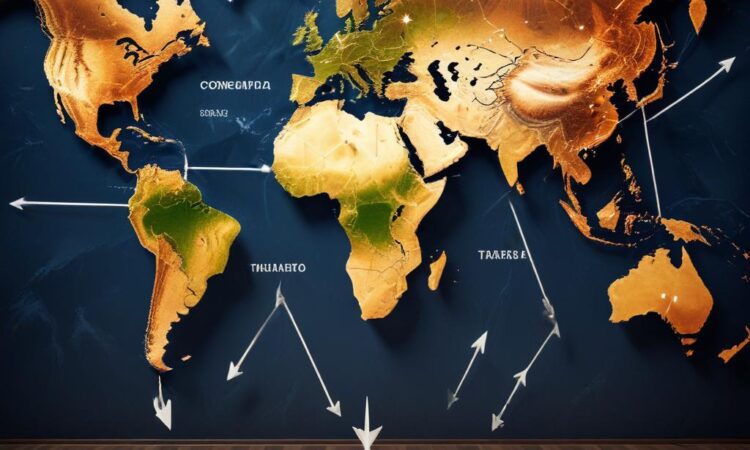Global Trade Slowdown: WTO Revises Outlook Downward
The World Trade Organization (WTO) has revised its global trade outlook downward, citing weakening economic conditions and ongoing geopolitical tensions. Trade volumes are expected to slow in the coming months, potentially impacting global economic growth.
Weakening Economic Conditions
The WTO’s revised outlook reflects a growing sense of pessimism among economists and business leaders about the global economy. Several factors are contributing to this weakening, including:
- Rising inflation and interest rates
- Supply chain disruptions
- The war in Ukraine
- The ongoing COVID-19 pandemic
These factors are creating a challenging environment for businesses, making it more difficult to make investments and expand operations. As a result, demand for goods and services is slowing, leading to a decline in trade volumes.
Geopolitical Tensions
The war in Ukraine has also had a significant impact on global trade. The conflict has disrupted energy supplies and commodity markets, leading to higher prices and increased uncertainty. The war has also led to sanctions against Russia, which have further disrupted trade flows.
Moreover, geopolitical tensions between the United States and China continue to escalate. This has led to increased trade barriers and uncertainty, making it more difficult for businesses to operate across borders.
Impact on Global Economic Growth
The slowdown in global trade is expected to have a negative impact on global economic growth. As trade volumes decline, businesses will have less access to markets and inputs, leading to a reduction in investment and production. This could lead to a slowdown in economic activity and job losses.
The WTO has warned that the global economy is facing a number of risks, including a potential recession. The organization has urged governments to take steps to support trade and address the challenges facing the global economy.
Policy Responses
Governments around the world are facing pressure to take action to address the slowdown in trade and the weakening global economy. Some of the policy options being considered include:
- Fiscal stimulus measures, such as tax cuts and increased government spending
- Monetary policy easing, such as lowering interest rates
- Trade liberalization measures, such as reducing tariffs and other barriers to trade
- Efforts to address supply chain disruptions and improve global supply chain resilience
The effectiveness of these policies will depend on the specific circumstances of each country. However, it is clear that governments need to take decisive action to support the global economy and prevent a further slowdown in trade.
Conclusion
The WTO’s revised outlook for global trade is a cause for concern. The slowdown in trade is a symptom of the broader challenges facing the global economy. Governments need to take action to address these challenges and support trade in order to ensure a strong and sustainable global recovery.
It is important to note that the WTO’s forecast is based on a number of assumptions and could change depending on future developments. However, the current outlook suggests that the global economy is facing a period of uncertainty and volatility. Businesses and governments need to be prepared for the challenges ahead.

